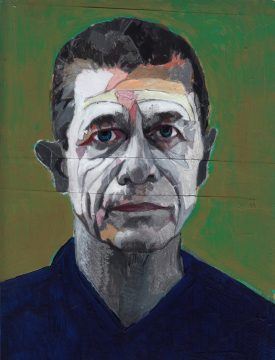Robert Gottlieb at The New York Times:
 By breaking with Capote’s model — by “saying yes to the first person,” as Carrère puts it — he had found his way. When his book, “The Adversary,” was published in 2000, not everybody liked it, neither in France, where Carrère was already well known for his novels and screenplays, nor abroad, where he was largely unknown. But the book became a tremendous success, signaling a new approach to the writing of nonfiction: deeply personal, deeply empathetic, disconcertingly self-revelatory. Carrère spared no one, least of all himself. Each of his books became not only a superb account of its subject but a painful report of the author’s struggle to find a way to write it. His reputation grew with every book, until in an excellent profile of him published in The New York Times Magazine in 2017, Wyatt Mason could state with authority: “If Michel Houellebecq is routinely advanced as France’s greatest living writer of fiction, Carrère, whose prose is no less remarkable for its purity and whose vision is no less broad, is widely understood as France’s greatest writer of nonfiction.”
By breaking with Capote’s model — by “saying yes to the first person,” as Carrère puts it — he had found his way. When his book, “The Adversary,” was published in 2000, not everybody liked it, neither in France, where Carrère was already well known for his novels and screenplays, nor abroad, where he was largely unknown. But the book became a tremendous success, signaling a new approach to the writing of nonfiction: deeply personal, deeply empathetic, disconcertingly self-revelatory. Carrère spared no one, least of all himself. Each of his books became not only a superb account of its subject but a painful report of the author’s struggle to find a way to write it. His reputation grew with every book, until in an excellent profile of him published in The New York Times Magazine in 2017, Wyatt Mason could state with authority: “If Michel Houellebecq is routinely advanced as France’s greatest living writer of fiction, Carrère, whose prose is no less remarkable for its purity and whose vision is no less broad, is widely understood as France’s greatest writer of nonfiction.”
That is why the publication of “97,196 Words” is of such consequence. Here, in roughly the order of their original publication, are 20 essays (totaling 97,196 words) that reveal both the depth and the breadth of his achievement.
more here.
